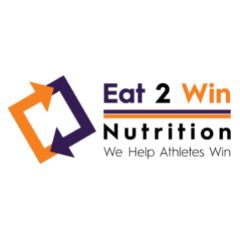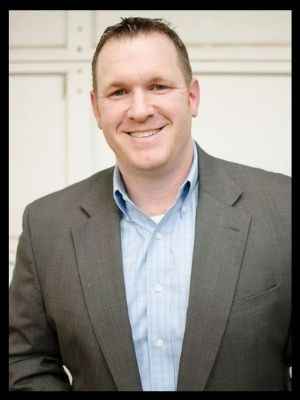Why Athletes Can't Gain Weight and How to Fix It
Q&A for Session #10
Tavis Piattoly, MS, RD, LDN
Sports Nutrition Symposium 2.0
Friday January 22st @7pm CST
The webinar will discuss the challenges athletes face when it comes to gaining weight due to excessive calorie expenditure along with a lack of sufficient calorie intake. It will also provide nutrition strategies to help athletes overcome the challenges by learning a list of low volume/high calorie foods.
All live sessions are free to attend. If you want lifetime access to the sessions from Sports Nutrition Symposium 1.0, 2.0 and 3.0 then check out the VIP Pass!
- How do you convince hard-headed young athletes to drop a couple activities that they do casually which help them destress? (i.e. pickup basketball, climbing, jogging)?
- He is blunt and asks what the athlete’s goal is. If they say they want to gain weight, then he will say the excess activity will not be beneficial to that goal. If the athlete wants to play football, he recommends them not to focus on endurance based activities if they want to get bigger and stronger.
- Endurance activity can be beneficial for other reasons of course, but if we have a strength and power athlete we want to train them in a way that will help them add that desired weight.
- We need them to scale back in activity and not do activities that are endurance based, such as a baseball coach having athletes run fences for an hour if they want to get bigger and stronger. That does not align. For power sports, we should not be training endurance activity.
- Do we often see stomach issues/pains with young athletes who are over training?
- Yes stomach issues occur often with young athletes. For those that are overtraining specifically, he would imagine so. There are more issues if athletes try to add in too much food too fast. The process here is slow. A lot of bulk and fiber is not the focus, as that can cause issues. Low residue and faster digesting foods are a bit better for these athletes.
- Why is the ceiling 1g protein/lb bodyweight?
- Unsure. Question for Stew Phillips or Dr. Bob Wolf. Ask these individuals that study protein why 1 g and not more. There is a reason, but he does not have an explanation at this time.
- What kind of macros do you recommend? Also, sleep is extremely important (read Why do we Sleep by M. Walker)!
- He does not. With this age group it is too complicated to focus on macros. He does not believe athletes in generals should be messing with counting Macros. Having them focus on logging it in their phone is not a great habit, especially with this population.
Does not go through a specific goal when it comes to Macros with athletes. Rather he uses periodization. When he develops plans, he scales back the calories on low volume days. - Emphasizes a focus on building healthy habits, not on counting Macros and numbers. Mainly. because kids do not follow this stuff. You are battling more often just getting these athletes to eat more.
Sleep is also so key. A recent study came out that just 1 night of poor sleep can attenuate muscle gains.
- He does not. With this age group it is too complicated to focus on macros. He does not believe athletes in generals should be messing with counting Macros. Having them focus on logging it in their phone is not a great habit, especially with this population.
- Thoughts on PHV for predicting when athletes are able to put on weight? Considering the different Tanner stages do you just not see some athletes put on weight?
- Sometimes the body is not ready to gain weight in young athletes from puberty and maturity status. Some are just not going to gain, but if in a surplus they should gain. We have to make sure we progress them the right way.
- Some kids have very little stomachs. He does high fat options at breakfast. Morning might be a high liquid calorie option or a ½ cup of mixed nuts with a banana and already to drink, instead of 3 pancakes + eggs which might be hard to stomach. He does a lot of high calorie, low volume options in the morning. Ensure plus + ½ PBJ is another example. This example is a way that they are not chewing too much and consuming too much.
- Have you had any experience working with athletes with disordered eating /body image issues but need to gain weight and struggles with cutting back on activity and/or eating more?
- Yes, but this is not his area of expertise. He refers out for this. He has narrowed his scope of who he wants to work with. He recommends focusing on a specific population as a Sports RD.
He does not focus on eating disorders, so he would have to ask out on this question.
- Yes, but this is not his area of expertise. He refers out for this. He has narrowed his scope of who he wants to work with. He recommends focusing on a specific population as a Sports RD.
- What about the athlete who "hates eating"/ doesn't have interest in food? I've seen this a lot, just don't like to eat
- That is a tough challenge. There is no best approach here. It is more about what they like. It is about what you enjoy in life. Find out about what they enjoy about eating. Find how motivated they are to try eating more.
- If they are an athlete with a lot of potential we want to convince them that nutrition has value. They may not buy it all the way, but we have to accept the fact that this is a puzzle and to start small and work up to bigger goals. This is going to take time. Their body might not be ready and we just have to train it by taking this process slowly.
- Do you use Nordiacs Omega Curcumin for the turmeric for your pitchers?
- No, he uses Integrative Therapeutics for Curcumin & Turmeric. They have a theracurmin. This is the most bioavailable.
Curcumin & Turmeric are poorly absorbed. - Thorne has a great one that uses Meriva. Meriva is a phospholipid and form of curcumin with great absorption/bioavailability.
Theracumin outperforms all of these by getting into the bloodstream faster and therefore being more readily able to benefit performance.
- No, he uses Integrative Therapeutics for Curcumin & Turmeric. They have a theracurmin. This is the most bioavailable.
- I know many coaches who suggest weight gaining supplements. I am an advocate of food first philosophy as I see greater nutrient benefit from this strategy and better recovery but how do you handle working with an athlete who trusts the coach so much that they really want to give weight gainers a try?
- He takes a food first approach. Shakes and powders can be beneficial to not create a lot of bulk in the stomach before bed. If athletes eat dinner at 7pm and then they still need 800-900 calories at 9:30pm we can do this via a shake with- 2 scoops of a higher calorie protein powder, a couple TBSPs of peanut butter, whole milk, and ½ cup ice cream.
- Thoughts on ONS (oral nutrition supplements) such as Ensure, Boost, etc?
- He likes the Ensure Plus. Does not matter what brand. It is more what the individual likes and this is just calories.
There are some good options in regard to 3rd party tested products. He sticks with NSF certified for sport to make sure athletes are taking clean products.
- He likes the Ensure Plus. Does not matter what brand. It is more what the individual likes and this is just calories.
- How are you calculating needs?
- He likes Harris Benedict. Then he looks at different formulas based on the type of activity. It is not perfect, we will never get perfect but it is effective.
- A website he likes is NutriStrategy. It looks at the weight of an individual and assesses how many calories burned per minute based on body weight + type of sport.
- Looks at the activity factor throughout the day and tries to get as close as he can.
- When track weight that week if it is increasing, then that is positive. He strives for compliance with clients and tries to get to 80% compliance, as well as understand the importance of the nutrition plan so they can improve their performance. He never expects 100% compliance as that can get to a state where the athlete is obsessing over it, which is not ideal.
- Do you come across young athletes with eating disorders often, and if so how do you manage those additional concerns/factors?
- He has seen more male soccer players obsessed with body image. They are afraid to gain weight and believe being skinny will make them faster. He has seen a lot of body dysmorphia with this.
- Try to give athletes analogies to work with as you educate them about body composition, as this can help them better relate. Ex: Relating power and speed to being like a Ford F150.


